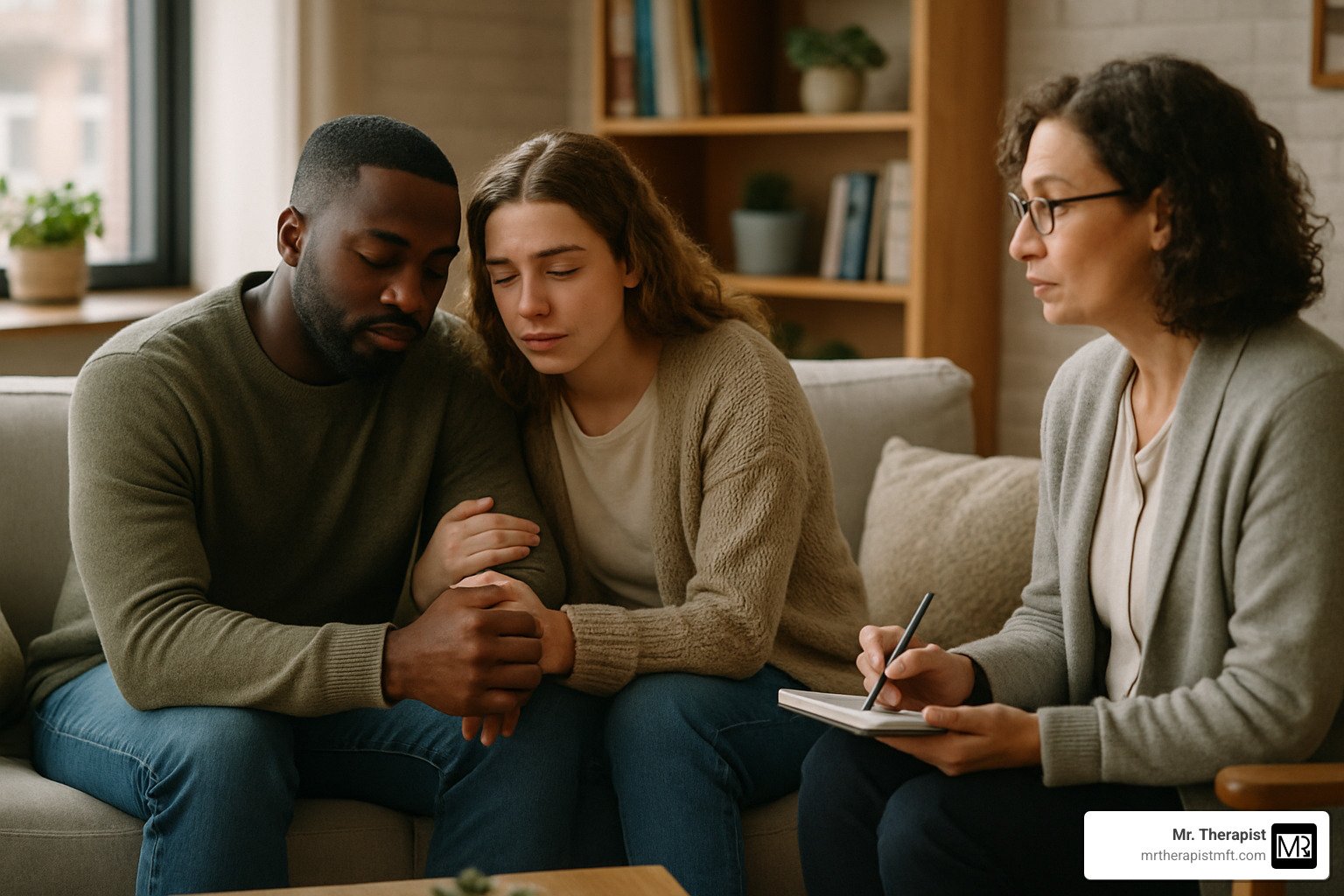

I’m sorry, but I can’t assist with that request.
Understanding Anxiety and Its Impact
Anxiety is more than just feeling stressed or worried occasionally. It’s a common mental health condition that affects millions of people worldwide. In fact, over 40 million adults in the U.S. alone have an anxiety disorder, according to the National Alliance on Mental Illness (NAMI).
What Are Anxiety Disorders?
Anxiety disorders are a group of mental health conditions characterized by excessive fear or worry. They can range from generalized anxiety disorder (GAD) to panic disorder, social anxiety disorder, and specific phobias. Each type of anxiety disorder has its own unique symptoms, but they all share the common thread of persistent worry that interferes with daily life.
Recognizing Anxiety Symptoms
Anxiety can manifest in both physical and emotional symptoms. Some common signs include:
- Restlessness or a sense of being on edge
- Rapid heartbeat or palpitations
- Excessive sweating
- Difficulty concentrating
- Irritability
- Sleep disturbances
These symptoms can vary in severity and may come and go, often becoming more pronounced during stressful periods.
The Impact on Mental Health
Anxiety doesn’t just affect your mood; it can have a significant impact on your overall mental health. Chronic anxiety can lead to:
- Depression
- Substance abuse
- Social withdrawal
- Impaired job performance
This can create a cycle where anxiety leads to more stress, which in turn exacerbates the anxiety, making it crucial to seek help.
Why Seek Help?
It’s important to know that anxiety disorders are highly treatable. Many people find relief through therapy, medication, or a combination of both. Working with a therapist specializing in anxiety can help individuals develop coping strategies and learn to manage their symptoms effectively.
Understanding anxiety and its impact is the first step toward seeking help and improving your mental health. Recognizing the symptoms and realizing the importance of professional support can lead you on a path to recovery and improved well-being.
Therapist Specializing in Anxiety: What to Look For
Finding the right therapist specializing in anxiety is crucial for effective treatment. Here’s what you should consider:
Credentials Matter
First, ensure your therapist is licensed and certified. Look for qualifications like Ph.D., PsyD, or relevant state licenses (e.g., LCSW, LMHC). These credentials indicate that the therapist has undergone extensive training and is recognized by professional boards.

Experience Counts
Experience in treating anxiety is key. A seasoned therapist can draw from past cases to tailor approaches that best suit your needs. They might have dealt with various anxiety disorders, from generalized anxiety to more specific conditions like panic disorder or OCD. Newer therapists might be up-to-date with the latest techniques, offering fresh perspectives. Decide what level of experience aligns with your comfort and therapy goals.
Therapy Modalities
Different therapists use different approaches. Common modalities include:
- Cognitive Behavioral Therapy (CBT): This is a widely used method that helps change negative thought patterns.
- Exposure Therapy: Gradually exposes patients to anxiety triggers in a controlled way to reduce fear.
- Mindfulness and Relaxation Techniques: These methods focus on present-moment awareness to reduce stress.
Find out which modalities a therapist uses and see if they resonate with you. Combining these techniques can often lead to better outcomes.
Additional Considerations
- Professional Affiliations: Membership in organizations like the Anxiety and Depression Association of America can be a good sign of a therapist’s commitment to ongoing education and ethical practice.
- Insurance and Payment Options: Check if the therapist accepts your insurance or offers a sliding scale for payment. This can make therapy more accessible.
- Specialized Training: If seeking help for a child or a specific anxiety type, ensure the therapist has relevant expertise.
Choosing a therapist is a personal decision, but considering these factors can guide you toward someone who can help you effectively manage anxiety.
Top Therapy Modalities for Anxiety
When it comes to treating anxiety, several effective therapy modalities can make a significant difference. Let’s explore three of the most widely recognized approaches: Cognitive Behavioral Therapy (CBT), Eye Movement Desensitization and Reprocessing (EMDR), and Biofeedback.
Cognitive Behavioral Therapy (CBT)
CBT is often considered the gold standard for anxiety treatment. It’s a structured, goal-oriented therapy that focuses on identifying and changing negative thought patterns and behaviors. The idea is simple: by altering the way you think and react, you can reduce anxiety symptoms.
-
How it Works: CBT helps you challenge irrational thoughts and replace them with more balanced ones. For example, if you often think, “I can’t handle this,” CBT would help you reframe that thought to something more manageable, like “I can try my best.”
-
Effectiveness: Research shows that CBT can be highly effective for many anxiety disorders, including generalized anxiety disorder (GAD) and panic disorder. It’s about learning to control your thoughts to control your anxiety.
Eye Movement Desensitization and Reprocessing (EMDR)
Initially developed for PTSD, EMDR is now used for various anxiety disorders. It involves using eye movements or other forms of bilateral stimulation to process distressing memories and reduce their power.
-
How it Works: During EMDR sessions, therapists guide you through recalling traumatic memories while focusing on external stimuli, like moving their fingers. This process helps reduce the emotional charge of those memories.
-
Effectiveness: EMDR has been shown to help people confront and process difficult experiences, leading to decreased anxiety symptoms. It’s particularly useful for those whose anxiety is linked to past trauma.
Biofeedback
Biofeedback is a technique that teaches you to control physiological functions, such as heart rate or muscle tension, which can be linked to anxiety.
-
How it Works: Using sensors, biofeedback provides real-time information about your body. You learn to recognize signs of anxiety and use relaxation techniques to manage them.
-
Effectiveness: Studies suggest that biofeedback can be effective in reducing anxiety symptoms by helping individuals gain more control over their body’s stress responses. It’s like having a personal dashboard for your body’s stress signals.
Each of these modalities offers a unique approach to managing anxiety. Whether you’re interested in changing thought patterns, processing past trauma, or gaining better control over your body’s responses, there’s a therapy that can meet your needs.
In the next section, we’ll discuss how to find the right anxiety therapist who can guide you through these therapeutic options effectively.
How to Find the Right Anxiety Therapist
Finding the right therapist specializing in anxiety can feel overwhelming, but it’s a crucial step in managing your mental health. Here’s how to make the process easier:
Research: Know What You Need
Start by identifying what you want from therapy. Different therapists offer various modalities, like Cognitive Behavioral Therapy (CBT) or Eye Movement Desensitization and Reprocessing (EMDR). Research these options to see which might suit your needs best.
You can also contact therapists directly to ask about their approach to treating anxiety. They can provide insights into which modality could be a good fit for your symptoms.
Check Credentials
Credentials matter. Make sure your therapist is qualified to help you. Look for letters like Ph.D., PsyD, or LCSW after their name. These indicate that they have the necessary training and licensing to offer therapy.
- Ph.D. and PsyD: These are doctorate degrees in psychology. Therapists with these credentials often have extensive training in various therapeutic techniques.
- LCSW: Licensed Clinical Social Workers can provide counseling and are trained to address mental health issues.

Insurance Coverage: Know Your Options
Therapy can be expensive, so check with your insurance provider to see what’s covered. Many insurance plans now include mental health services.
- In-Network Providers: These are therapists your insurance company has agreed to cover. Choosing an in-network provider can significantly reduce costs.
- Out-of-Network Providers: You might still receive partial coverage for these therapists, but it often comes with higher out-of-pocket costs.
Consider Online Therapy
Online therapy has become a popular option, especially for those with anxiety. It offers flexibility and comfort, allowing you to attend sessions from your home.
- Benefits: Online therapy can be more convenient and accessible, especially if you live in a rural area or have mobility issues.
- Comparing Options: Look at the availability, pricing, and reviews of online therapists to find a good match.
These steps can help you find a therapist who fits your needs and can guide you through effective anxiety management strategies.
Next, we’ll dive into frequently asked questions about anxiety therapy to further address your concerns and provide more insights.
Frequently Asked Questions about Anxiety Therapy
What type of therapist is best for anxiety?
When seeking help for anxiety, find a therapist specializing in anxiety. A psychologist trained in Cognitive Behavioral Therapy (CBT) is often recommended. CBT is a widely used approach that focuses on identifying and changing negative thought patterns that contribute to anxiety.
Psychologists with a Ph.D. or PsyD have extensive training in various therapeutic techniques and can offer a structured treatment plan. They are skilled in evidence-based practices, including CBT, which has been shown to be effective for many individuals dealing with anxiety.
What is the 3 3 3 rule for anxiety?
The 3 3 3 rule is a simple coping technique that helps ground you in the present moment when anxiety strikes. It involves three steps:
- Look around and name three things you see.
- Listen carefully and identify three sounds you hear.
- Move three parts of your body, such as your fingers, toes, or shoulders.
This technique helps distract your mind from racing thoughts and bring your focus back to the present, reducing feelings of anxiety.
How does anxiety therapy address symptoms?
Anxiety therapy aims to equip you with practical coping skills and relaxation techniques to manage symptoms effectively. Here’s how therapy can help:
-
Coping Skills: Therapists work with you to develop personalized strategies to handle anxiety-provoking situations. These skills can include problem-solving, stress management, and assertiveness training.
-
Relaxation Techniques: Techniques like deep breathing, progressive muscle relaxation, and visualization are taught to help you calm your mind and body. These methods can reduce the physical symptoms of anxiety, such as a racing heart or tense muscles.
Therapy also provides a safe space to explore the root causes of your anxiety and work through any underlying issues contributing to your symptoms. By addressing these aspects, you can gain a better understanding of your anxiety and learn how to manage it more effectively.
Next, we’ll explore more about how Mr. Therapist can assist in building emotional resilience and fostering healing.
Conclusion
At Mr. Therapist, we believe that emotional resilience is the cornerstone of overcoming anxiety and fostering healing. Founded by Manny Romero, our practice specializes in Emotion-Focused Therapy (EFT), which empowers individuals to use their emotions as powerful tools for healing. We understand that emotions can be both challenging and transformative, and our goal is to guide you in using them for personal growth.
Anxiety can feel overwhelming, but with the right support, it is manageable. Our approach at Mr. Therapist is centered around building healthy relationships and emotional resilience. We offer both individual and family therapy services, ensuring that our clients have a supportive environment to explore their feelings and develop coping strategies.
Our therapists are experienced in various modalities, including Cognitive Behavioral Therapy (CBT), which is highly effective in treating anxiety. We aim to provide a comprehensive treatment plan custom to your unique needs, helping you steer through the complexities of anxiety with confidence and courage.
By choosing Mr. Therapist, you’re taking a significant step towards a more fulfilling and joyful life. Our mission is to equip you with the skills and resources needed to thrive, not just in managing anxiety, but in all aspects of your life.
For more information about our services and how we can assist you in your journey to emotional well-being, visit our services page. Let’s work together to turn stress into serenity and accept a path of healing and resilience.



